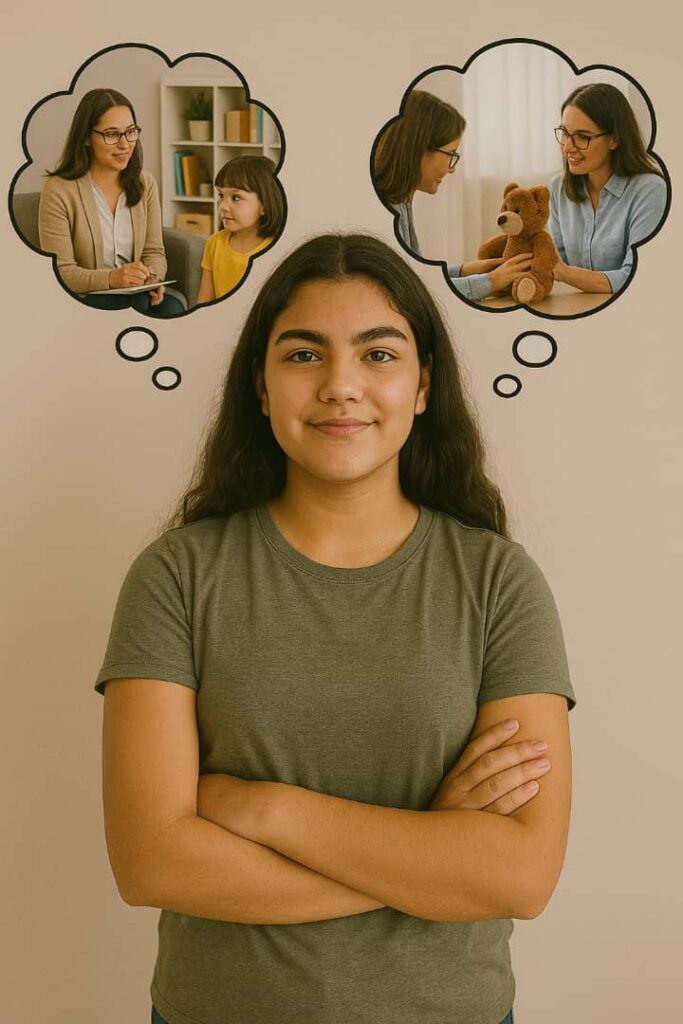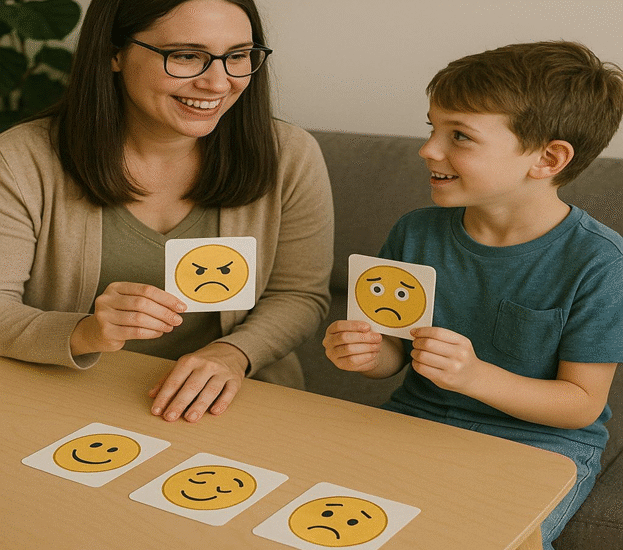I still remember the first time I saw a child therapist in action. Child therapy builds crucial emotional skills that help kids navigate friendships, school, and life. Discover how it complements parenting. It was at my niece’s sixth birthday party when one of the little guests completely lost it over a dropped ice cream cone. Before any of the parents could react, the birthday girl walked over, put her hand on her friend’s shoulder, and said, “It’s okay to feel sad when things don’t go right. Want to help me get you a new one?” That moment showed me what years of research confirms – emotional skills can be taught, and therapy provides tools parents often don’t have.
More Than Just Coping: The Lasting Benefits of Emotional Growth
Childhood therapy isn’t just about solving problems – it’s about building fundamental human skills. Unlike academic learning that happens in classrooms, emotional intelligence develops through guided experiences. Therapists create safe spaces where children can practice identifying feelings, navigating conflicts, and understanding social cues.
I’ve seen this firsthand with my neighbor’s son. After working with a therapist, he went from hitting classmates when frustrated to using simple phrases like “I need space right now.” The change wasn’t magic – it came from carefully structured activities that made abstract concepts concrete. His therapist used color-coded emotion cards and role-playing games that turned emotional learning into something tangible and fun.
How Therapy Complements Parenting
Even the most attentive parents hit limits when teaching emotional skills. We tend to either lecture (“You need to share!”) or solve problems for our kids. Therapists take a different approach – they create experiences where children discover solutions themselves.
A friend’s daughter struggled with anxiety until her therapist introduced “worry time” – a dedicated 15 minutes each day to process fears. The rest of the day, when anxieties surfaced, she could say “I’ll save that for worry time.” This simple framework gave her more control than any parental reassurance ever had.
Group therapy offers particularly powerful lessons. In these sessions, children get real-time feedback from peers about how their actions affect others. One boy I know learned about personal space not from adult warnings, but when playmates naturally moved away during games. These organic consequences teach faster than any lecture.
Building Blocks for Future Success

The emotional skills learned in therapy don’t just help in childhood – they become the foundation for adult relationships and career success. Children who understand their emotions tend to form stronger friendships, perform better academically under stress, and develop resilience that serves them throughout life.
Perhaps most importantly, these sessions give kids a powerful message: their feelings matter and can be managed. This belief becomes an inner resource they carry into adolescence and beyond. As one young client told her therapist, “Now when I get mad, I don’t feel scared of my feelings anymore.”
References
Kids First Services. (2025, April 2). The impact of psychotherapy on emotional intelligence in children.
American Psychological Association. (2025). Building emotional intelligence: How therapy can help children understand their emotions. Engage Therapy.
Ford, T. (2021). Education in emotional intelligence: An arts therapies based method (Master’s thesis, Lesley University).

